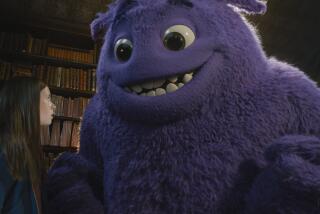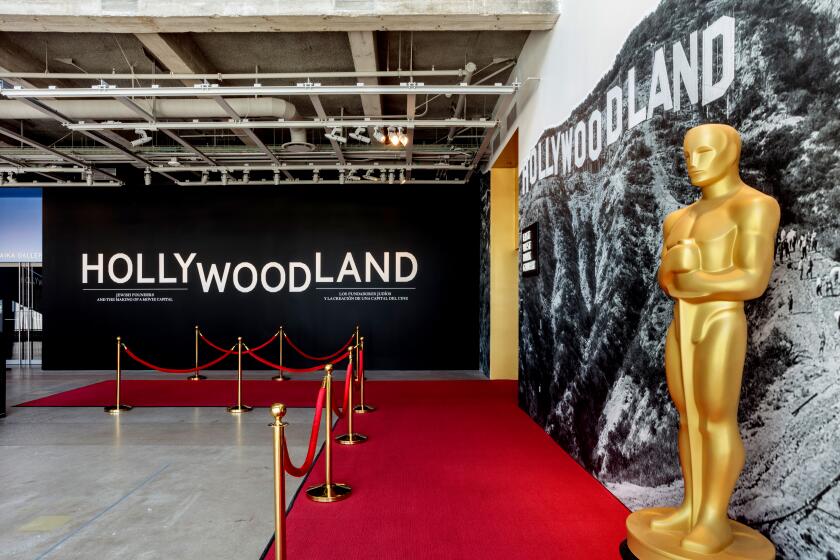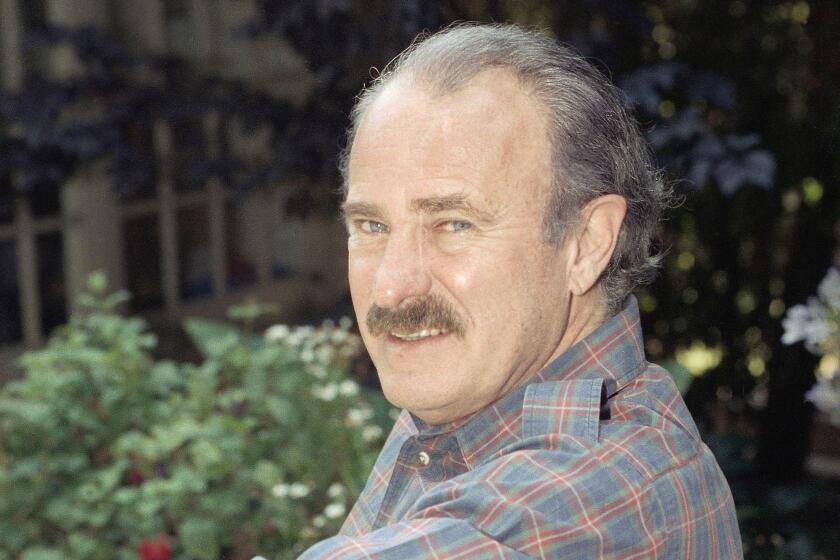Laguna Takes Some Heat From HBO Movie
It’s steamy. It’s sexy. It’s sordid. It’s seamy. It’s . . . Laguna? Not really, but that’s the portrait of Laguna Beach going out to the nation this month in “Laguna Heat,” the Home Box Office movie based on the 1985 murder mystery by Orange County author T. Jefferson Parker.
The image “Laguna Heat” gives is that of a picturesque seaside resort that’s wealthier, a little more spacious, a lot more rural and a lot seedier than the Real McCoy. It’s a city draped in intrigue, a cliquish community smoldering with summer brush fires, repressed secrets and delayed vengeance. Everyone in town, it seems, is embroiled in the labyrinthine goings-on--except for the homeless, who are visible at nearly every turn.
If nothing else, it all provides an imaginative change of face for a community that trumpets itself to outsiders as the “Home of the Pageant of the Masters,” that uniquely kitschy summertime festival where people dress up and impersonate famous artworks.
Raymond Chandler it ain’t.
And don’t look around Main Beach--or anywhere else in Orange County--for the swank, expansive Surfside Club resort hotel that’s a central element in “Laguna Heat.” It’s actually the Mandalay Beach Resort in Oxnard. A police station scene was shot in Westwood’s Veterans Administration hospital instead of in Laguna itself.
Local attitudes as depicted in the movie are sometimes as confusingly crisscrossed as the supposed location shots. Early on, for instance, ex-Los Angeles Detective Tom Shephard (who, as portrayed by “L.A. Law” star Harry Hamlin, looks like he’s either in a perpetual sweat or suffering from chronically oily skin) takes on a murder investigation in Laguna, and when he arrives on a crime scene the local police detective sounds about one notch above country bumpkin:
“Think your big city smarts can cut this one, Shephard?”
City Councilman Robert F. Gentry said he enjoyed the half of “Laguna Heat” he saw before falling asleep (“It was a long day”) but commented that this scene “certainly wasn’t accurate in terms of our Police Department, (made up of) highly professional people.”
Later in the film, a gruff, vaguely shady hotel-resort owner named Joe Datilla, played by Rip Torn, moans to Shephard about Laguna’s changing character: “You’ve seen downtown--it ain’t what it was when you grew up here. We got homosexuals now, street people. . . . Paradise has turned into a slum with palm trees. It ain’t no better than Jersey anymore.”
Great quote. But I’d wager that offered a choice, 99.9% of the known world would choose a Laguna address over one in Passaic.
Datilla also embodies Orange County’s stereotypically conservative self-made businessman when he proudly tells Shephard:
“President Nixon stayed here one night. Tremendous man--great sense of humor.”
Nolo contendere.
Other Lagunans have complained that the film exaggerates the city’s homeless population. “We have a homeless problem, but it’s not like it was 10 years ago,” said Peter McGrath, a consultant at Laguna’s Cottage Restaurant.
Further, the movie jettisons basic Southern California reality for Hollywood fantasy at several junctures. In one scene Shephard and the woman who becomes his romantic interest go for a late night session of skinny-dipping and love-making in the ocean. Laguna may be a beautiful resort and vacation area, but face it: It’s not surrounded by the South Pacific. Even on a hot summer night, an ocean swim in these waters would induce hypothermia, not amor.
But the most common complaint raised by several Lagunans interviewed last week was that the film missed the city’s real character.
“There are so many interesting things here,” said Jim Otto, a resident for 22 years who owns a record shop in the city. “So many neat places, strange people. I felt that was lacking. From a visual standpoint the movie showed the things that make Laguna unique from a helicopter’s viewpoint. But they didn’t get down on the street. The artists, the galleries, the festivals--I’m kind of disappointed they left that out.”
Still, “Laguna Heat,” which will be repeated on HBO on Thursday and next Monday, won some fans even among locals who criticized its accuracy.
“I think it’s going to be a hit,” Gentry said. “I viewed it as a fictional story, so I really didn’t tie it to the community. . . . It certainly came across as one of the most beautiful communities in the world.”
Otto felt that the filmmakers’ unfortunate “sanitizing” of Laguna resulted, in part, from their making it “less gay.” But Gentry, the city’s first openly gay councilman, said he “did not get that impression that (Laguna’s gay community) was whitewashed. A movie shown on HBO is not going to examine a community in great depth. A certain amount of homogenization has to occur if it’s going to appeal to a larger community.”
Now if I lived in Laguna, I wouldn’t care so much whether a particular pier appeared in the wrong place, or whether the police force and businessmen rang true. I’d be more interested in whether I could recommend the movie itself. I love New Orleans, but I’drather send friends postcards of Tipitina’s or the French Quarter than ask them to sit through a listless movie like “The Big Easy.”
And it doesn’t bother me a whit how sleazy Roman Polanski made Los Angeles look in “Chinatown.” I love telling people I was born in the city where such a great film took place.
A recommendation on “Laguna Heat”?
Send postcards.
More to Read
Only good movies
Get the Indie Focus newsletter, Mark Olsen's weekly guide to the world of cinema.
You may occasionally receive promotional content from the Los Angeles Times.






